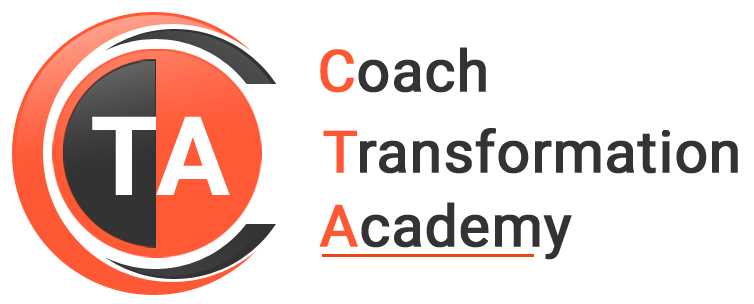
Leadership and Performance Coach
Sarah is a Leadership and Performance Coach based in the San Francisco Bay Area. She is a Meta Coach and a member of the faculty and Advisory Board at Goleman EI. Sarah works with CEOs, entrepreneurs, and leaders from all over the world on emotional intelligence coaching and focus training. She is also the Founder of the Non Profit Organization, eiFOCUS. Here, she trains athletic coaches and athletes on the skills of emotional intelligence so that they can become leaders in sport and in life.
Key Notes:
Coaching with Emotional Intelligence
Episode 20 of Transformational Tuesday was terrific! Sarah Kivel and Bridgette Morehouse shared some intriguing insights, stories, and tips on emotional intelligence that everyone can relate to, whether a coach or not.
Sarah Kivel and Bridgette Morehouse are the faculties and members of the Goleman EI Coaching Advisory Board. Together they shared about Goleman Emotional Intelligence competency framework and the influence of emotional intelligence in coaching.
Here are the key takeaways from the webinar:
- Emotional intelligence is the ability to recognize what you’re feeling and understand how your emotions affect your performance and relationships.
- Self-awareness is at the heart of emotional intelligence. Understanding our feelings and emotions and how we show up is crucial. It’s challenging to identify emotions in other people if we cannot understand our own.
- What makes for high performance in leaders? The research revealed that emotional intelligence has a massive influence on the success of top leaders. Emotional intelligence is the highest trait among high performers.
- Emotional intelligence starts with ourselves – how we see ourselves, are we aware of our own emotions. This is the foundation of EI.
- Once we develop self-awareness, we can learn to self-manage.
- Four domains of emotional intelligence: Self-awareness, self-management, social awareness, and relationship management.
- Self Awareness:
- Emotional Self-awareness: Identifying and understanding our emotions.
- Self Management:
- Emotional Balance: How do I want to show up. How can I manage my emotions? How do we manage our emotions, especially under stress and pressure? How do we check ourselves when we show up in relationships? How are you showing up to your coaching sessions with your clients?
- Achievement Orientation: Developing an understanding that we can continue improving to meet or exceed a standard of excellence.
- Adaptability: How we can go with the flow. How adept are we.
- Positive Outlook: How are we looking at the situation. Are we looking into it with positivity? Positivity is an energy that fuels us. We have a choice of how we look at our situations too.
- Social Awareness
- Empathy: Ability to put ourselves in another person’s shoes. As we manage ourselves, we work on our self-awareness, and then we move into self-management, and then we use these skills to relate with our clients.
- Organizational Awareness: The ability to look at the situation of your client as a whole. They are individuals as well as part of something greater. So, how can we understand this greater awareness of where our clients are in their world.
- Relationship Management:
- Influence: How are we influencing our clients.
- Conflict Management: How are we managing conflicts with others.
- Inspirational Leadership: Are you inspiring your clients to reach the goals. Are you motivating and supporting your clients to be fully engaged and continue improving.
- Teamwork: Working as a team with your client.
- Coach and Mentor: How are you showing up as a coach? Are you showing up as a coach the way you have set up and explained to your clients.
- Self-awareness and self-management are the foundational skills in emotional intelligence. The only thing we can control is how we show up for the other person.
- All of these skills can be learned. When people have a coach to build these skills, they’re even more effective in learning these skills.
- We can’t begin to change behavior until we look underneath it. And that is essentially emotional intelligence.
Different elements of Self-Awareness:
- Attentional Agility – the ability to control where you focus and think about the situation from a different perspective.
- Emotional Awareness – be able to name/label emotions in a granular way to be more resilient.
- Interoception – tuning into what your body is informing you, awareness of how your body is showing up at that moment. Connecting the body state to the emotional situation.
- Presence of mind – Shifting awareness to what’s happening in the moment. Being able to bring your mind and awareness to that present moment.
- Meta-cognition – thinking about our thinking. Ability to step back and think about the situation.
Emotional Balance
- Threshold – how quickly or easily we become triggered
- Severity – the degree to which we are triggered
- Resilience – how quickly we recover
If we can manage how quickly we’re triggered and the degree to which we’re triggered in a circumstance, we can build resilience. Resilience helps us to adapt to the changing situations and to be able to maintain some level of stability through all ups and lows in life and work.
Moving from self-awareness to awareness of others
- Moving from self-awareness to awareness of others is the crux of coaching skills.
- Checking in with yourself
- Checking in with others
- Shift in moods and emotional states
- Noticing other people’s emotional valence and salience
- Valence is how good or bad the emotion. Salience – how aware the person is about his/her emotions.
- Compassion – the unbearable urge to act on another’s behalf. Compassion is the bridge that connects us with the other person. It builds that ability to connect through empathy and drives coaches to help and create actions on the client’s behalf.
- The ability to change your story as a coach and make sure that it’s not getting in the way of building that compassionate connection with others.
What is the state of my listening?
Listening and being present with listening are critical for coaches.
- Does my cup have a residue? : Am I coming to a conversation with the assumptions about the client?
- Is your cup leaky?: Are you showing up in this conversation with the half ear?
- Is your cup too full? : Are you exhausted and not being fully present in the conversation?
Common Pitfalls when Listening
- Confirmation Bias
- Know-it-all
- Empty space filler
- Impatient interrupter
- Indifferent and apathetic
- Mind Wanderer
- Contrarian
- Fault Finder
Body Scan
- When we name our emotions, we are better able to manage our emotions.
- One way to identify and name our emotions is to do a body scan.
Self-regulation is not just recognizing and honoring emotions but also about finding proper outlets for them as well. And that’s what coaches can do to help them show how it could look like for them.
We hope you found our webinar with Sarah and Bridgette valuable and applicable. Don’t forget to watch the entire video to not miss all the details.
A big shout out to Sarah Kivel and Bridgette Morehouse for this informative and engaging webinar!
Subscribe to our YouTube Channel to learn more from coaches all around the world.
Stay tuned for the next episodes!




